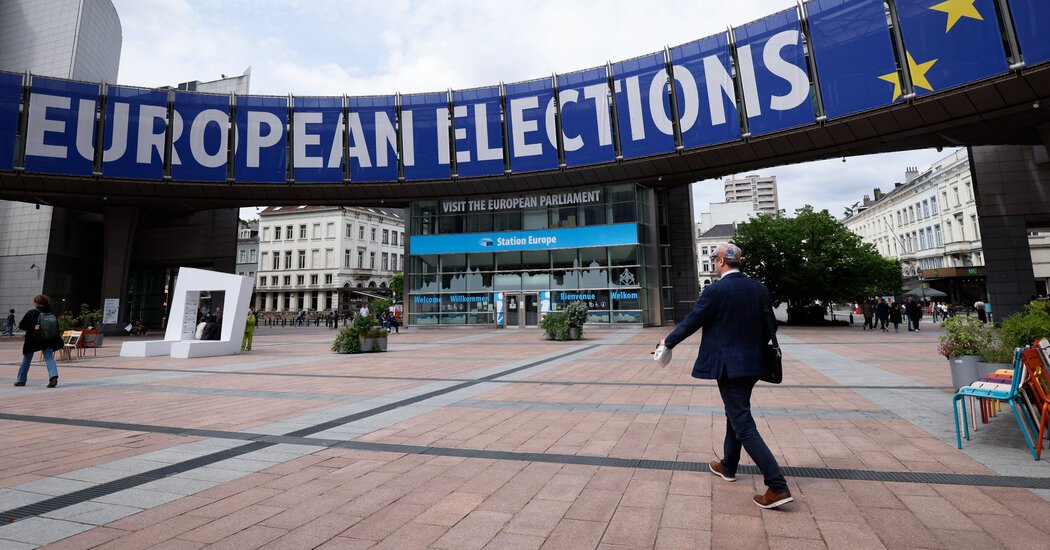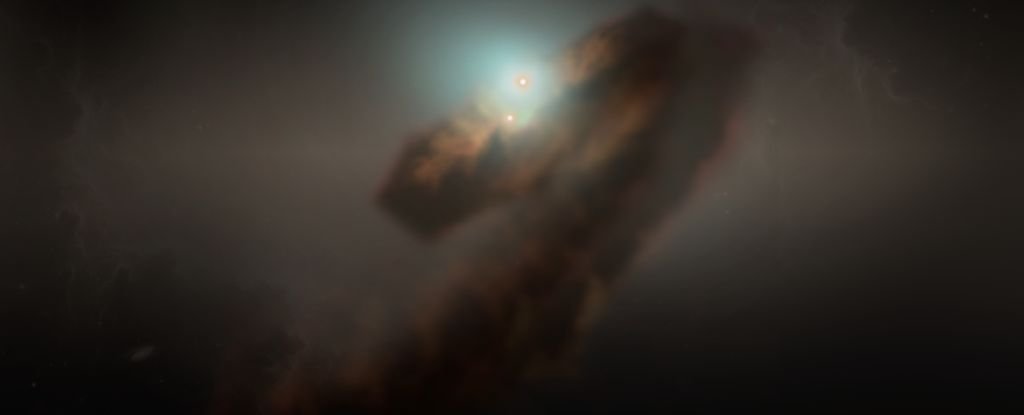Over the past five years, the leaders of the European Union tried to turn the 27-country bloc into a global climate front-runner.
They made big strides. They enshrined into law an ambitious target to cut planet-heating emissions by more than half by 2030. They set a 2035 deadline on the sales of new gas-guzzling cars. They expanded the price that industries must pay for emitting greenhouse gases.
But this week, as voters prepare to go to the polls, Europe’s green credentials face a very different test.
There’s widespread frustration over rising prices. Farmers’ groups have stormed European capitals to protest proposals to limit pollution from agriculture. The right wing is ascendant. The Greens, who in 2019 won their largest share of seats in European parliamentary elections, are today polling poorly.

If Europe loses its green groove in the coming elections, it could have far-reaching consequences not only for European citizens and businesses, but also the rest of the world. Europe is among history’s top polluters.
“There is a lot at stake,” Laurence Tubiana, one of the key architects of the Paris climate accord and now the head of the European Climate Foundation, wrote in an email. “The gains of the last five years cannot be taken for granted.”
Here are five takeaways from Europe’s election.
The climate crisis faced new crises.
In the 2019 elections, the European Greens scored 10 percent of seats in the 705-member parliament, making them a force to contend with for the leading conservative European People’s Party.
At the time, the zeitgeist was green. Climate protesters had filled the streets of European capital cities, demanding action.
The European Union soon approved the European Green Deal, with a legally binding target to reduce its emissions by 55 percent by 2030, compared with 1990 levels.
Then, three big things happened. A pandemic. Inflation. And the Russian invasion of Ukraine. Almost overnight, the war forced European countries to ditch natural gas piped in from Russia, which was, until then, a cheap source of electricity.
The bloc’s economic powerhouse, Germany, felt the impact acutely, so much so that the government’s efforts to accelerate the adoption of heat pumps became embroiled in the culture wars. Conservatives and right-wing politicians, supported by a populist press, railed against what the parties characterized, somewhat falsely, as a ban on gas boilers. The government had to back off and tweak its proposal.
But warming didn’t stop being a problem.
Europe is warming faster than the global average. And hazards have been on plain display: fires in Greece, floods in Germany, crippling heat waves in Italy and Spain.
Polls show robust support for climate action, but also concern about costs and signs of what the European Council on Foreign Relations, a research organization, calls “growing greenlash.” While people “want action to be taken on the climate crisis, they do not want to bear significant costs of the green transition themselves,” the organization wrote in a recent analysis.
The vote will matter for years.
The immediate impact will be on the bloc’s emissions-reduction targets for 2040.
The current proposals from the European Commission, the bloc’s executive arm, calls for cuts of 90 percent by 2040, compared with 1990 levels. It’s unclear what the next commission might support, particularly because the next round of cuts will likely require altering things that affect everyday lives, like home heating (hello, heat-pump controversy) and transportation. Keep an eye on how the 2035 ban on the sale of new internal combustion cars will fare.
Perhaps the toughest question will be what to do about emissions from agriculture.
Farmers’ protests across Europe led the current administration to drop proposals to limit pollution from agriculture.
Looming over Europe’s clean-energy-transition options are choices being made in the United States and China. The Biden Administration has showered green energy enterprises, from battery factories to carbon removal projects, with tax incentives. China is exporting low-cost solar panels, wind turbines, batteries and electric vehicles worldwide.
Rystad Energy, a private firm that looks at energy trends, pointed out that the roughly $125 billion that the European Union has invested in clean energy technology would soon fall behind the United States.
Politicians are coloring the Green Deal.
The leading European People’s Party is claiming the Green Deal as its hallmark achievement, even as it whittles back unpopular provisions, like on farming, with an eye on the ballot box. It frames it as a way to sever Europe’s dependence on Russia. “We turned Putin’s challenge into a major new opportunity,” the European Commission president, Ursula Von der Leyen, said in January.
Further on the right, the European Conservatives and Reformists party has cast some of the Green Deal’s policies — setting aside land for restoration rather than agriculture, for instance — as a culture wars issue that it says unfairly target farmers. It has promised to examine what it calls in its election manifesto the Green Deal’s “more problematic objectives.”
The Greens’s message to voters is that European businesses need a clear signal that they can compete in the green industries of the future. “These elections will determine the future of Europe’s climate policy,” Bas Eickhout, a Green party leader said by telephone. “If we stop now, it would be bad news for European industry.”
Changes have been ‘resilient’ (so far).
Much more renewable energy has come online, putting the European Union on track to draw 70 percent of its electricity from wind and solar by 2030, according to E3G, a research group. European law puts a price on climate pollution in several industries. And European carmakers are, albeit belatedly, going electric.
The Green Deal “has turned out to be much stronger and resilient as a political agenda then many thought it would be,” said Pieter de Pous, an analyst with E3G, “but it is also facing some formidable political opponents now, especially coming from the far right.”
Christopher Schuetze and Matina Stevis-Gridneff contributed reporting.










